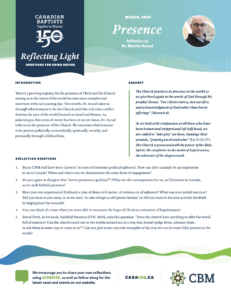By the time this piece is published, there may also be thousands of Lebanese who are displaced due to the expansion of the conflict into Lebanon. So, as we look at our resources, will we observe like Philip that “it would take more than half a year’s wages to buy enough bread for each one to have a bite!” Or as we look at our “five small barley loaves and two small fish,” will we exclaim like Andrew, “but how far will they go among so many?” Or will we hear Jesus’s words of faith: “Have the people sit down,” and give thanks and distribute to all those in need? (John 6:7-11)
The Church once again will need to abandon partisan politics in order to practice its presence through a mentality of abundance, possibly at great cost to itself everywhere. Will we rise up to this immense challenge?
Religious Presence
In times of great conflict, the human tendency is to take refuge in self-protectionism through sectarian politics and religious exclusivism. But the gospel of Jesus precisely calls us to rise above those divisive walls. The third dimension of the Church’s presence, then, begins by hearing what we do not wish to hear that religion that divides and builds walls is no religion at all, that we must break away from religions that are merely the ideologies of godless people. The Church practices its presence in the world as we give heed again to the words of God through his prophet Hosea: “For I desire mercy, not sacrifice, and acknowledgment of God rather than burnt offerings” (Hosea 6:6). Jesus heard those words and made them his own in Matthew 9:13 and 12:7.
Social Presence
In times of conflict, our instinct is to protect our own and safeguard the cohesion of our social networks and communities. But here again, the Church’s presence bears a radical social dimension as we hear Jesus’s definition of “who is my neighbour” and practice his teaching in the parable of the Good Samaritan. Fourth, therefore, the Church practices its presence by reaching across conventional social boundaries as we refuse to look the other way. As we look with compassion at all those who have been beaten and stripped and left half dead, we are called to “take pity” on them, bandage their wounds, “pouring on oil and wine” (Luke 10:25-37).
Personal Presence
Finally, times of great upheaval inflict on millions of people a sense of personal hopelessness and despair. As so many face the loss of loved ones, they are driven to anger and a desire for revenge. Brutal ideologies, clothed in religious language, will seek to cultivate and harvest recruits for the next cycle of violence and terror. Political and militant language will construct narratives of indignation, whether in the high courts of international forums, or in the dark underworld networks of subversive groups.
The fifth dimension of the Church’s presence, then, is to reach out to those who have been broken by loss. The Church is possessed with the power of the Holy Spirit, the comforter in the midst of hopelessness, the advocate of the dispossessed. As the Church itself is dealing with loss and grief, can it hear the soft whisper of God’s Spirit who gives peace that surpasses understanding? Can its wounds become a source of healing, from which Christ’s suffering and sense of abandonment restores hope in a God who comes through with victory over death? Will we channel through our presence the very presence of Christ, God with us through the valley of death?
This moment in history is a great test of the Church. Will we act in the confidence of Christ’s comprehensive redemption of the world?
Pause and Reflect
- Many CBM staff have been ‘present’ in times of immense political upheaval, from the Dalit Uprisings in India to the riots in Albania, from the Rwandan genocide and exodus in the Congo to the past and current wars in Lebanon and the Middle East. Our field staff have typically chosen to remain fully present, practicing that the writer refers to as the economics of abundance, sharing with the needy. How can their example be an inspiration to us in Canada? When and where can we demonstrate the same form of engagement?
- Do you agree or disagree that “active presence is political”? What are the consequences for us, as Christians in Canada, as we seek faithful presence?
- Have you ever experienced firsthand a time of deep civil unrest, of violence or of upheaval? What was your initial reaction? Did you want to run away, or as we read, ‘to take refuge in self-protectionism’ or did you want to become actively involved in helping heal the wounds?
- Many writers have said that through faithful presence, we become the gospel, not just gospellers or proclaimers of the good news, but the very message of hope and healing. Can you think of a time when you were able to incarnate the hope of Christ in a situation of hopelessness?
- David Fitch, in his book, Faithful Presence (IVP, 2016), asks this question: “Does the church have anything to offer the world full of injustice? Can the church reach out to the worlds around me in a way that doesn’t judge them, alienate them, or ask them in some way to come to us?” Can you give some concrete examples of the way we can be more fully present in the world?












